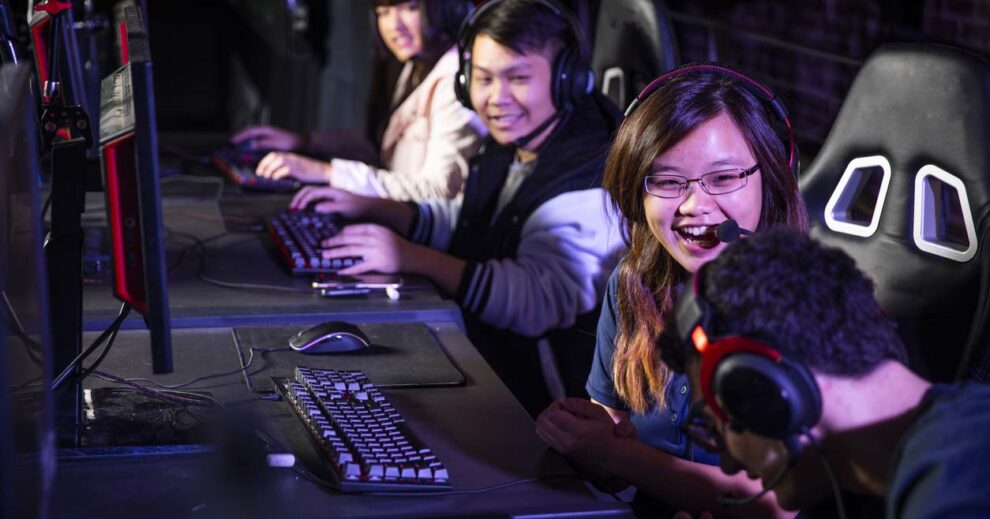Food and beverage companies are targeting Asia’s lucrative electronic games (e-games) market by rolling out customised functional products and sponsoring esports events in collaboration with leading game developers. Opportunities are rife for such products in China, which by itself is a US$50 billion-plus market for mobile, personal computer, console, and cloud gaming software, as well as other booming Asian markets, such as Japan and South Korea, according to GlobalData, a leading data and analytics company.
Tim Hill, Key Account Director at GlobalData Singapore, said that during extended gaming sessions, e-gamers were prone to consume snacks and drinks to quell hunger pangs, stay hydrated, and play uninterrupted.
Food and beverage makers are rolling out premium products targeting this high-spending cohort of avid gamers to cash in on the popularity of gaming. Companies are customising the recipes with ingredients that boost stamina and mental alertness, allowing e-gamers to extend their sessions and improve their performance. Additionally, they are personalising offerings for e-gamer cohorts of different genders, ages, and geographic regions. This personalisation feature can appeal to 57 percent of Asian consumers whose product choices are often or always influenced by how well the product or service is tailored to their needs and personality.
Bobby Verghese, Consumer Analyst at GlobalData, said that energy drinks were the dominating category for gamers. Recent product launches targeting avid gamers include Coca-Cola’s Thums Up Charged energy drink, unveiled in Vietnam and Cambodia, and Beat The World’s G-Beat energy drink and computer manufacturer Acer’s PredatorShot in Thailand. Coca-Cola claims that Thums Up Charged is infused with vitamin B3, caffeine, and zinc to boost energy. According to the manufacturer, G-Beat is made with natural caffeine, without white sugar, and fortified with vitamins A and B to support eyesight and brain functioning. Acer claims PredatorShot is fortified with vitamin A to boost gamers’ eyesight.
“Companies are also collaborating with top game developers to launch co-branded products and packaging,” said Hill.
For instance, Coca-Cola unveiled a limited-edition Coca-Cola Ultimate Zero Sugar with a unique flavour inspired by Riot Games’ hit game, League of Legends. Other recent examples include Mister Potato’s special edition pack for the game Mobile Legends: Bang and ZUS Coffee’s limited-edition drink, Velvet Crème Poring Latté, with the theme of the popular mobile game Ragnarok Origin. Within the food service sector, notable examples of e-game collaborations include Pizza Hut and Domino’s Pizza, which rolled out unique campaigns in Malaysia in collaboration with a popular mobile game, Genshin Impact.”
Verghese stated that one of the advantages of targeting e-gamers was that companies could employ digital and social media marketing to engage the target cohort instead of traditional mass marketing approaches. For instance, Coca-Cola roped YouTube streamer Độ Mixi as the brand ambassador for its Thums Up Charged energy drink launch.
Similarly, PepsiCo’s Doritos chips brand collaborated with HeartRocker, a leading e-gaming social media influencer. According to GlobalData’s 2023 consumer survey, 61 percent of Asian respondents find endorsements by celebrities or organisations an essential or nice-to-have factor, and 66 percent of respondents said the same for social media recommendations.
Hill concluded that partnerships between e-games developers and food and beverage companies could ultimately benefit both parties, enabling them to put their brand’s intellectual property to greater use.
“Leveraging pop culture and e-games can aid food and drinks companies in making their brands more relevant to the emerging Gen Z cohort. Through collaborations with popular food and drinks brands, e-games developers and esports organisers benefit from wider exposure and additional revenue streams for their offerings and events.”
Source : Supermarket News















